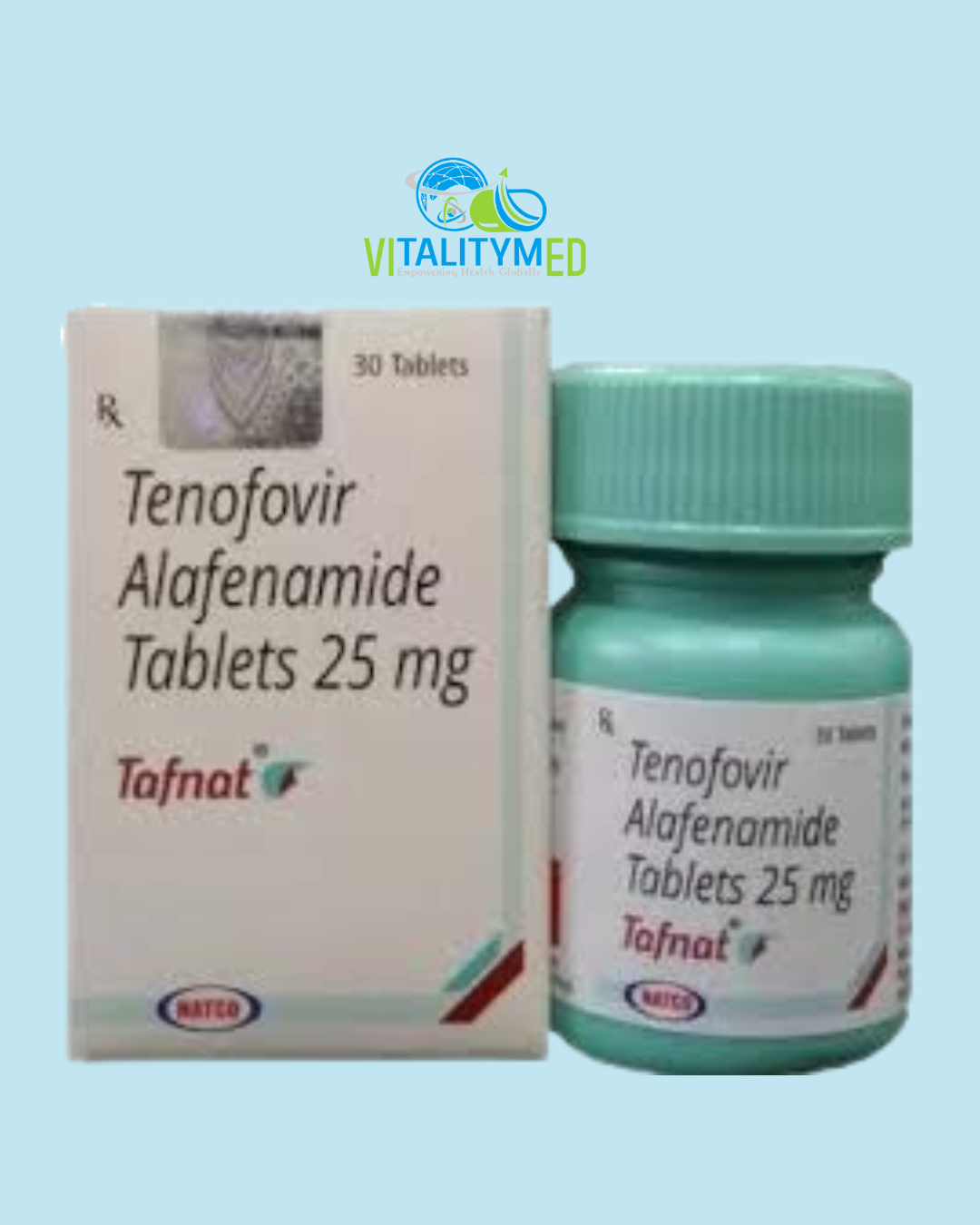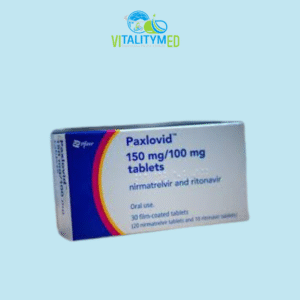Tafnat is an antiviral medication used for the treatment of chronic hepatitis B virus infection. It contains tenofovir alafenamide, a newer generation of tenofovir designed to be more targeted in its action and less toxic to the kidneys and bones. Tafnat is taken once daily and is suitable for long-term use, offering a safer and more effective option for managing hepatitis B.
Mechanism of Action:
Tafnat works by stopping the hepatitis B virus from multiplying inside the body:
-
Tenofovir alafenamide is a prodrug, meaning it becomes active only after being absorbed and processed inside liver cells.
-
Once activated, it is converted into tenofovir diphosphate, which blocks the virus’s reverse transcriptase enzyme.
-
This enzyme is crucial for the virus to make copies of its genetic material. By blocking it, Tafnat helps stop the virus from spreading further in the liver.
Uses:
Tafnat is used for:-
The treatment of chronic hepatitis B infection in adults and adolescents aged twelve years and above with signs of active viral replication or liver inflammation.
-
Its goal is to suppress the virus, reduce liver inflammation, and prevent complications like cirrhosis or liver cancer.
Adverse Effects:
Tafnat is generally well tolerated, with a lower risk of kidney and bone-related side effects compared to older forms of tenofovir. However, some individuals may experience:-
Headache
-
Nausea
-
Tiredness
-
Stomach discomfort
-
-







